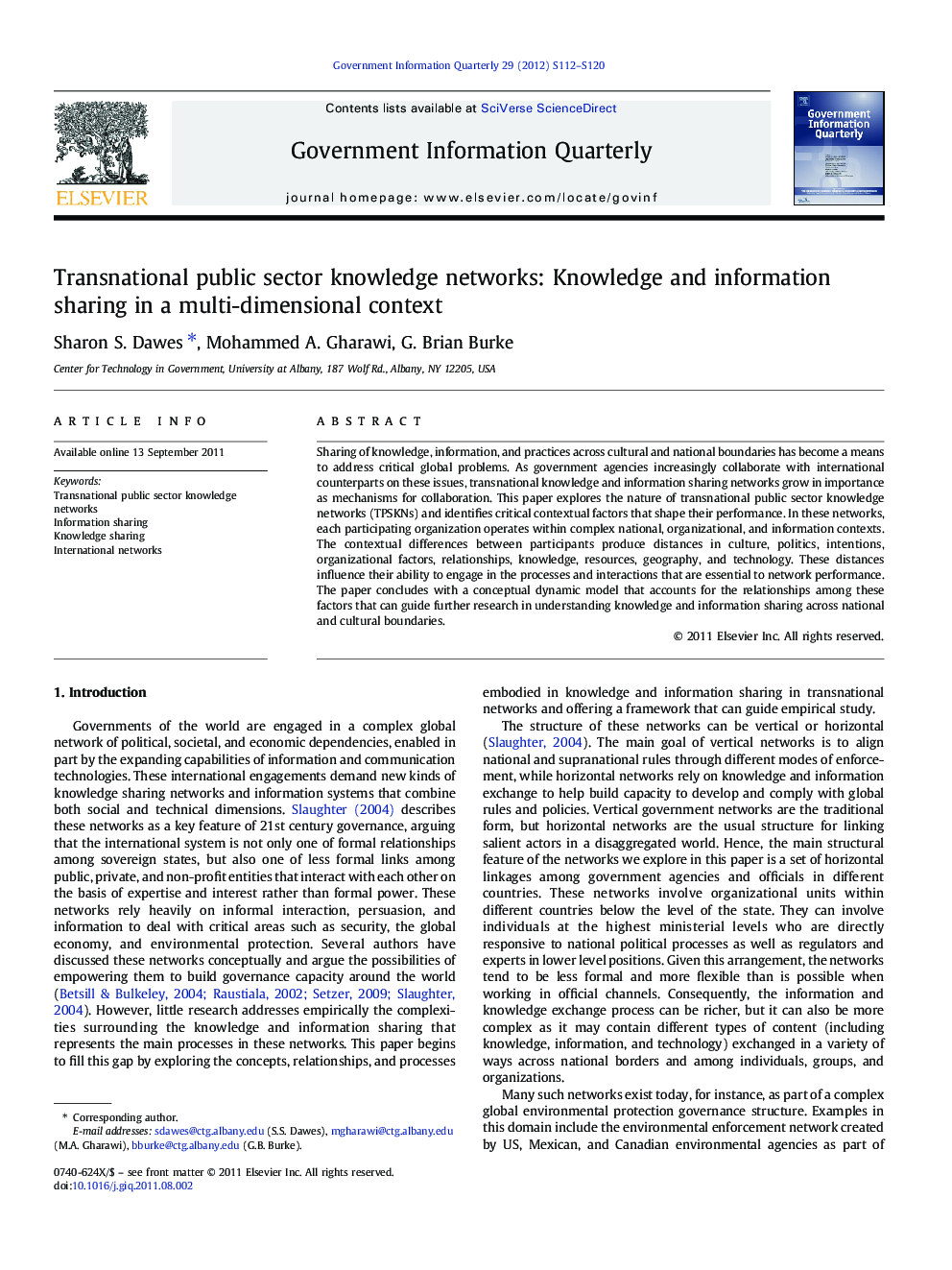| Article ID | Journal | Published Year | Pages | File Type |
|---|---|---|---|---|
| 1024666 | Government Information Quarterly | 2012 | 9 Pages |
Sharing of knowledge, information, and practices across cultural and national boundaries has become a means to address critical global problems. As government agencies increasingly collaborate with international counterparts on these issues, transnational knowledge and information sharing networks grow in importance as mechanisms for collaboration. This paper explores the nature of transnational public sector knowledge networks (TPSKNs) and identifies critical contextual factors that shape their performance. In these networks, each participating organization operates within complex national, organizational, and information contexts. The contextual differences between participants produce distances in culture, politics, intentions, organizational factors, relationships, knowledge, resources, geography, and technology. These distances influence their ability to engage in the processes and interactions that are essential to network performance. The paper concludes with a conceptual dynamic model that accounts for the relationships among these factors that can guide further research in understanding knowledge and information sharing across national and cultural boundaries.
► We conceptualize transnational public sector knowledge networks as a means to address complex global issues. ► Three layers of context (national, organizational, and informational) influence network participants and their interactions. ► “Contextual distances” between the actors limit their ability to achieve network goals. ► Network performance depends on the ability to bridge or shrink these distances.
